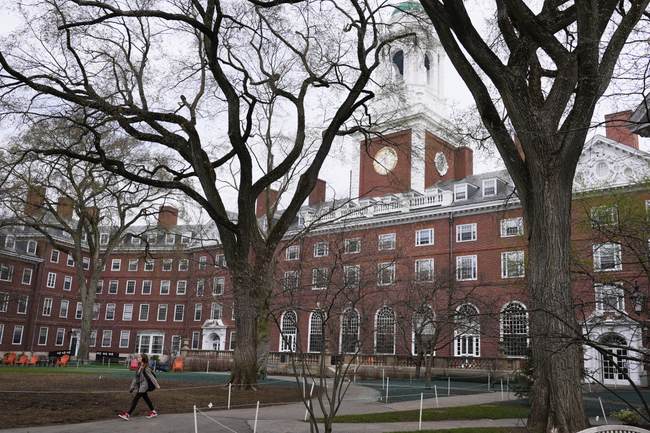
Publicly, Harvard continues to be the focus of resistance to the Trump administration. Just today Harvard received some additional support from two dozen universities, including several more from the Ivy League, in its lawsuit against the administration.
Twenty four universities, including five Ivy League schools, and more than 12,000 alumni took measures to back Harvard University in its legal battle against the Trump administration, which has threatened it with slashing billions of dollars in grants.
Princeton, Yale, Dartmouth, Brown and the University of Pennsylvania, along with several other schools, filed an amicus brief on Monday in support of the nation’s oldest university, arguing that the funding freeze would impact more than just Harvard, due to the interconnectedness of scientific research, and would ultimately hinder American innovation and economic growth…
“The escalating campaign against Harvard threatens the very foundation of who we are as a nation,” the alumni said in the brief. “We embrace our responsibility to stand up for our freedoms and values, to safeguard liberty and democracy, and to serve as bulwarks against these threats to the safety and well-being of all.”
But at the same time, Harvard is also quietly making changes sought by the Trump administration. For instance, it has been dismantling a program that some students complained was antisemitic.
Harvard University has spent the last year slowly dismantling a religious-studies program that critics said was biased against Israel, five current and former employees told The Chronicle. Last week, the final hammer fell: The five remaining staff members employed by the Religion and Public Life program were called, one by one, into meetings with a representative from Harvard’s human-resources department and the program’s interim director, David F. Holland. There, the sources said, all learned their contracts would not be renewed.
The nonrenewals mark the end of a saga that began in the days after Hamas’s attack on Israel in October 2023. They suggest how thoroughly Harvard intends to overhaul Religion and Public Life: After June 30, none of the program’s original leaders will be left at the university. Most of the staff will be gone, too, although two people may be granted temporary extensions, sources said…
Religion and Public Life first drew intense attention across Harvard four days after Hamas’s October 7th attack. Five instructors across the program sent out a statement in the program’s newsletter, which called on readers to consider the history of Israel’s “illegal occupation of Palestinian land” and its blockade of Gaza. Critics considered it callous — at worst, antisemitic — to put out such a statement so soon after Hamas militants killed about 1,200 people in Israel and took more than 250 hostage…
A few months later, the statement showed up in a lawsuit filed by students, accusing Harvard of being a “bastion of rampant anti-Jewish hatred.”
The split between the public resistance and the private decisions to make much needed changes isn’t new. Back in April, Harvard announced it was doing away with affinity group graduation ceremonies and shaking things up at its diversity office.
Harvard will immediately rename its Office of Equity, Diversity, Inclusion, and Belonging to “Community and Campus Life,” the University announced Monday…
The change was announced in a Monday afternoon email from Sherri A. Charleston — formerly Harvard’s chief diversity officer, now retitled as the University’s chief Community and Campus Life officer. Half an hour after Charleston’s email was sent, the OEDIB website did not reflect changes to its name or objectives.
“In the weeks and months ahead, we will take steps to make this change concrete and to work with all of Harvard’s schools and units to implement these vital objectives, including shared efforts to reexamine and reshape the missions and programs of offices across the university,” Charleston wrote.
Perhaps these quiet changes are why Sec. of Education McMahon said in an interview last week that she was seeing some progress at Harvard.
“I have seen progress. And you know why I think we’re seeing progress? Because we are putting these measures in place, and we’re saying we’re putting teeth behind what we’re looking at,” McMahon said in an interview with NBC News at her office in Washington.
Still, McMahon said Harvard needs to do more to combat antisemitism on campus and vet international students.
“It’s very important that we are making sure that the students who are coming in and being on these campuses aren’t activists, that they’re not causing these activities,” the education secretary said.
She echoed that point today in an interview with Bloomberg. “We are making progress in some of the discussions we’re having even though they have taken a hard line,” she said.










